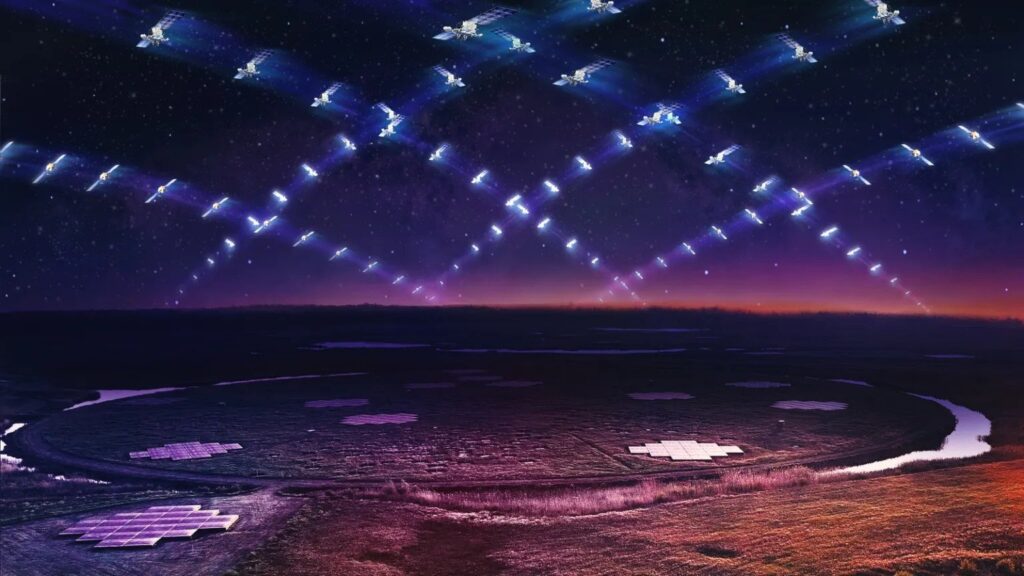Scientists reported that they caught a signal from Starlink satellites at a frequency different from the one they transmit, but at the same time reserved for radio astronomy observations on it. They draw attention to the fact that large groupings of spacecraft in orbit can interfere with radio astronomers.

Dutch astronomers caught the noise from Starlink
Starlink satellites emit radio signals at frequencies from 110 to 188 MHz. This was reported on July 5 by Dutch astronomers. Using the Low Frequency Array (LOFAR) radio antenna array, they observed the Starlink satellites flying over it. They found that this signal came from 47 of the 68 spacecraft that they observed.
Interestingly, these are not at all the frequencies at which the Starlink transmitting equipment operates. It occupies a range from 10.7 to 12.7 GHz. However, there is nothing mysterious about these signals. They are only electromagnetic noise that occurs on the spacecraft as a result of the operation of its equipment.
Scientists also noticed a much weaker noise at a frequency of 143.05 MHz, but it was quite confidently identified with the signal of the French GRAVES space tracking radar, which was reflected from the surface of the spacecraft.
The noise from each individual satellite is weak, but there can be quite a lot of them in the sky at the same time. The frequency at which it occurs is reserved specifically for scientific research carried out by radio astronomers. Therefore, it is quite possible that other large “constellations” may interfere with them.
Starlink hinders scientists
Complaints that Starlink interferes with scientists are not heard for the first time. Astronomers noticed it last winter. Then it turns out that too bright satellites prevent them from observing the sky in the optical range. And it’s not about the Internet from Elon Musk as such, other companies are also creating large groupings, and there are similar concerns about them.
At the beginning of 2023, American astronomers concluded an agreement with SpaceX that the next generation of satellites would reflect significantly less light. Later, a similar document was signed with their main competitor OneWeb.
There have been no such initiatives regarding noise in the radio band yet. Scientists are still studying how they can affect the work of astronomers. It is hoped that companies planning to create new powerful groupings will at least think about this problem.
According to spacenews.com.
Follow us on Twitter to get the most interesting space news in time
https://twitter.com/ust_magazine

